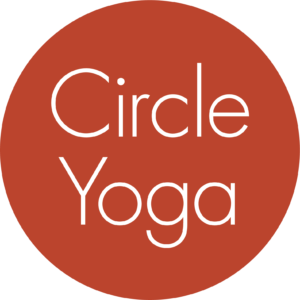July 2017
This archived edition of Thoughts from Annie was originally posted in July 2015.
Hermit Mind
Dear Friends,

Christopher Knight (aka The Last True Hermit) slept outdoors through 27 Maine winters. He broke into cabins and took whatever food he could grab. He also stole clothing, bedding, books, and camp items. In custody, he admitted that the only thing he had that he hadn’t stolen were his glasses. (Because none of the glasses he found during his break-ins had an appropriate prescription.) Knight told the GQ reporter that he had never been happy as a boy, not in high school, not in a job, and not with other people. But when he was living in the woods, he said, “I found a place where I was content.”
The Vietnamese Zen monk and mindfulness teacher Thay Thich Nhat Hanh often says that his life was inspired by a hermit living on Na Shun mountain in central Vietnam. Thay was a young boy on a school field trip to the mountain, and he hoped to meet the hermit who lived there. He wandered away from his classmates after lunch in search of the hermit, but instead he found a beautiful natural well filled with sparkling clear, clean water. Drinking the fresh water he felt content—like he didn’t need anything else in the world to be happy. That moment became a touchstone for young Thay who soon after decided to become a monk and spend his life helping other people find this elusive state of contentment.
The Buddha’s first teaching after he became enlightened was on the Four Noble Truths, the gist of which was that although being human always has its difficulties, true contentment is possible. Possible, yes, but it required some effort then, and even more today. Most of us face a never-ending barrage of advertisements—words and images telling us that we need something more in order to really be happy. With just one quick glance at my email today, I learn that my vibrations need expanding (with gemstones), I shouldn’t be sleeping alone, and I need the “sensual fragrance of bliss” created by the “Yogis of India” in order to be happy.
So how do we find contentment in the midst of a deluge of inner and outer voices suggesting otherwise? Well, you could become a hermit, and maybe that’s a viable option for you. For me, with four kids and a husband, it wouldn’t be ideal. We non-hermits want things to be different than they are—we are easy prey for advertising because we want to have more beauty, more space, better tasting food—that’s part of being human. But, our mistake is thinking we can create contentment by putting band-aids on all of our warts. The Buddha said that if the ground is painful to walk on we can either cover the whole world, or we could simply wrap our feet in leather and walk comfortably everywhere. It’s like that with contentment. We can try to make everything outside of us just perfect, or we could train our mind to be ok with whatever arises.
“WE THINK THAT IF WE JUST MEDITATED ENOUGH OR JOGGED ENOUGH OR ATE PERFECT FOOD, EVERYTHING WOULD BE PERFECT. BUT FROM THE POINT OF VIEW OF SOMEONE WHO IS AWAKE, THAT’S DEATH. SEEKING SECURITY OR PERFECTION, REJOICING IN FEELING CONFIRMED AND WHOLE, SELF-CONTAINED AND COMFORTABLE, IS SOME KIND OF DEATH. IT DOESN’T HAVE ANY FRESH AIR. THERE’S NO ROOM FOR SOMETHING TO COME IN AND INTERRUPT ALL THAT. WE ARE KILLING THE MOMENT BY CONTROLLING OUR EXPERIENCE. DOING THIS IS SETTING OURSELVES UP FOR FAILURE, BECAUSE SOONER OR LATER, WE’RE GOING TO HAVE AN EXPERIENCE WE CAN’T CONTROL: OUR HOUSE IS GOING TO BURN DOWN, SOMEONE WE LOVE IS GOING TO DIE, WE’RE GOING TO FIND OUT WE HAVE CANCER, A BRICK IS GOING TO FALL OUT OF THE SKY AND HIT US ON THE HEAD, SOMEBODY’S GOING TO SPILL TOMATO JUICE ALL OVER OUR WHITE SUIT, OR WE’RE GOING TO ARRIVE AT OUR FAVORITE RESTAURANT AND DISCOVER THAT NO ONE ORDERED PRODUCE AND SEVEN HUNDRED PEOPLE ARE COMING FOR LUNCH.” – PEMA CHODRON
The Buddhist teacher Pema Chodron defines contentment as profound well-being not based on changing circumstances– the happiness that already exists before we find a new job, new home, new wardrobe or expanded vibrations. We need to train ourselves to recognize that kind of contentment in each moment. The human brain, as neurobiologist Rick Hanson reminds us, is wired for negative experiences. We are much more likely to be aware of what we lack than what we already have. To change that mental habit, we have to practice noticing what’s good right now. As you read this, take 10 seconds to consider some things you aren’t lacking and then let the feeling of non-lacking really sink in. That’s contentment.
I’m not planning to move to Na Shun mountain in Vietnam or live in the Maine woods anytime soon. But I do want to practice living alone in my mind—not letting marketing geniuses fill my mind up with visions of what they think I should be buying or doing. The more our mind is hermit-like, the more we experience freedom and choice. Knight summed up his experience in the woods, “The moon was the minute hand, the seasons the hour hand. I didn’t even have a name. I never felt lonely. To put it romantically: I was completely free.” We may not find freedom living away from other people, but we can discover the contentment that Knight experienced and that Thay tasted at the well by clearing away some of the clutter that fills our minds, making space for life as it is right now.
with love,
annie.
